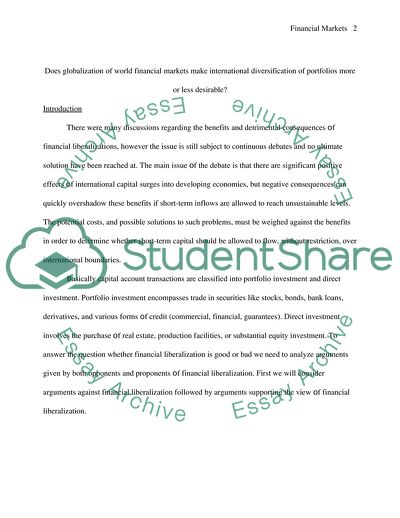Cite this document
(Impact of Globalization of World Financial Markets Essay, n.d.)
Impact of Globalization of World Financial Markets Essay. Retrieved from https://studentshare.org/finance-accounting/1710703-does-globalisation-of-world-fianancial-markets-make-international-deversification-of-portfolios-more-or-less-desirable
Impact of Globalization of World Financial Markets Essay. Retrieved from https://studentshare.org/finance-accounting/1710703-does-globalisation-of-world-fianancial-markets-make-international-deversification-of-portfolios-more-or-less-desirable
(Impact of Globalization of World Financial Markets Essay)
Impact of Globalization of World Financial Markets Essay. https://studentshare.org/finance-accounting/1710703-does-globalisation-of-world-fianancial-markets-make-international-deversification-of-portfolios-more-or-less-desirable.
Impact of Globalization of World Financial Markets Essay. https://studentshare.org/finance-accounting/1710703-does-globalisation-of-world-fianancial-markets-make-international-deversification-of-portfolios-more-or-less-desirable.
“Impact of Globalization of World Financial Markets Essay”. https://studentshare.org/finance-accounting/1710703-does-globalisation-of-world-fianancial-markets-make-international-deversification-of-portfolios-more-or-less-desirable.


